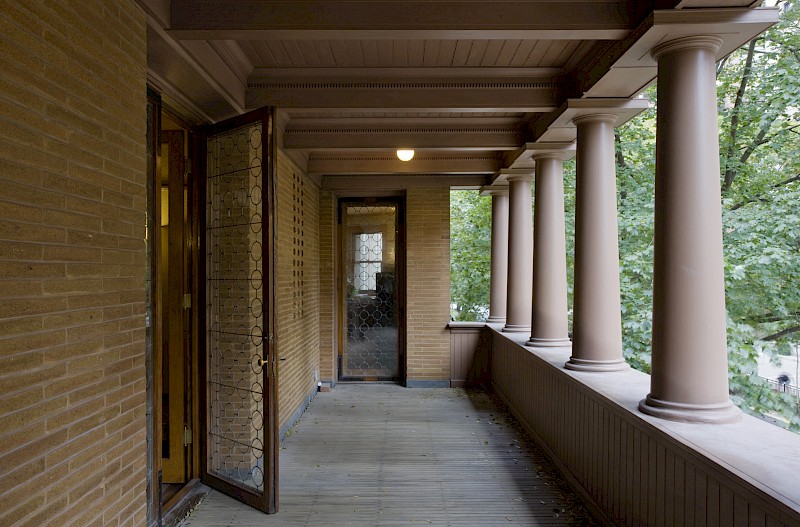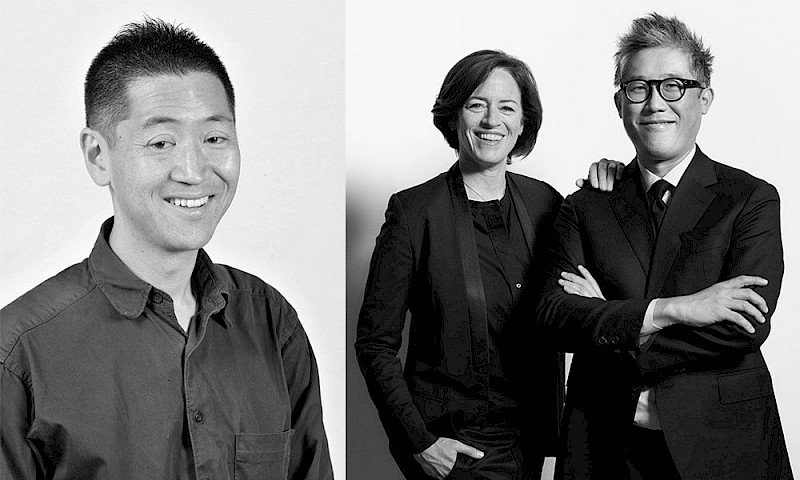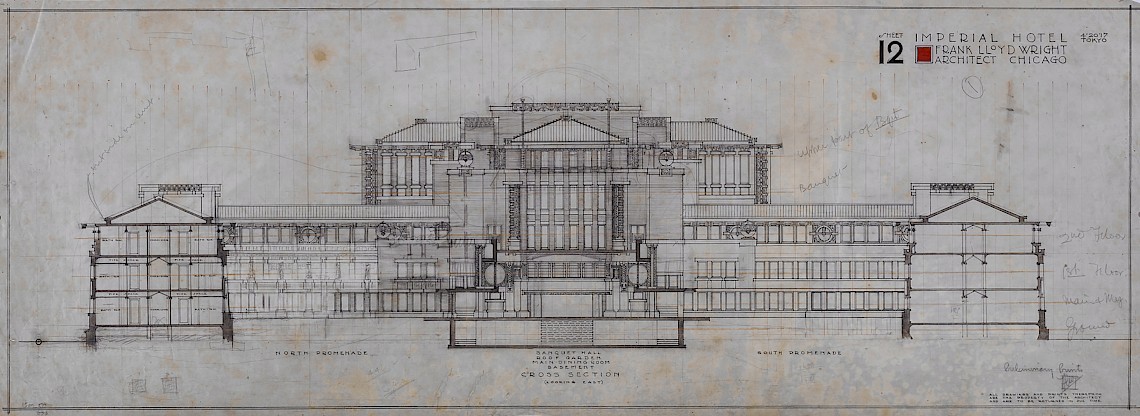“Make New History.” As the theme of this year’s Chicago Architecture Biennial, Artistic Directors Sharon Johnston and Mark Lee set out to explore the relationship between architectural history and the future and to engage the public in a discussion of the global built environment. Perhaps no other Biennial Program Partner exemplifies these values better than the Society of Architectural Historians (SAH), an international organization dedicated to the study, interpretation and conservation of the built environment, headquartered here in Chicago. On Friday, November 17, the Society will recognize Johnston and Lee for their work engaging public audiences with architecture at the SAH 8th Annual Awards Gala. The day before the event, SAH will present a discussion with Johnston and Lee on the international design practice and the global legacy of Frank Lloyd Wright.
The SAH Awards Gala brings the Chicago design community together each year to celebrate achievements made in architectural practice and academic study. Aric Lasher, FAIA, director of design at HBRA Architects, and Julie Michiels, AIA, associate principal and senior project designer at Perkins+Will, are chairing this year’s event, which will take place at the Racquet Club of Chicago. SAH will present Johnston and Lee with their Award for Public Engagement with the Built Environment for their work directing the Biennial and for creating environments that foster dynamic social cultural experience and exchange. SAH will also recognize Colonel Jennifer N. Pritzker, founder and president of the TAWANI Foundation, with the Award for Architectural Stewardship, and Perkins+Will’s Global Design Director, Ralph Johnson, FAIA, with the Award for Design, Planning and Sustainability.
Proceeds raised from the gala will help support SAH’s educational programs and publications, as well as the continued restoration of its landmark headquarters, the Charnley-Persky House, designed by Louis Sullivan and Frank Lloyd Wright (1891–1892). The house is in the heart of Chicago’s Gold Coast neighborhood, located at Astor and Schiller Streets. If you’ve never visited this unique architectural treasure, you should plan a visit. SAH opens its doors to the public every Wednesday and Saturday throughout the year with guided tours of the building Frank Lloyd Wright called “the first modern house in America.”

Wright’s work in Chicago and around the globe will be discussed on Thursday, November 16, during the free talk “Making History – Frank Lloyd Wright at the Global Crossroads: Chicago/Tokyo/NYC/LA” with SAH President Ken Tadashi Oshima. Oshima is Chair of the Japan Studies Program at the Henry M. Jackson School of International Studies, University of Washington, and Professor in the Department of Architecture where he teaches in the areas of trans-national architectural history, theory, representation, and design. The talk will build on new findings from the 2017 Museum of Modern Art exhibition Frank Lloyd Wright at 150: Unpacking the Archive, a major retrospective on the architect’s multifaceted practice. The exhibition was organized into 12 sections that investigated a key object or cluster of objects from the Frank Lloyd Wright Foundation Archives, and included a section in which Oshima focused on Wright’s Imperial Hotel in Tokyo, described by the architect as a blending of East and West. Oshima will present points of Wright's global practice between Chicago, Tokyo, Los Angeles, New York, and beyond. This will be a basis for a conversation with Biennial Artistic Directors Sharon Johnston and Mark Lee about parallels with the Chicago Architecture Biennial and their own architectural practice based in Los Angeles, with important projects including additions to the Museum of Contemporary Art in Chicago and the Menil Collection campus in Houston.

Top image: Imperial Hotel, Tokyo. 1913–23. Cross section looking east. Ink, pencil, and colored pencil on drafting cloth, 15 x 40 in. (38.1 x 101.6 cm). The Frank Lloyd Wright Foundation Archives (The Museum of Modern Art | Avery Architectural & Fine Arts Library, Columbia University, New York). © 2017 Frank Lloyd Wright Foundation, Scottsdale, AZ. All rights reserved.



